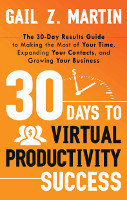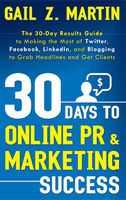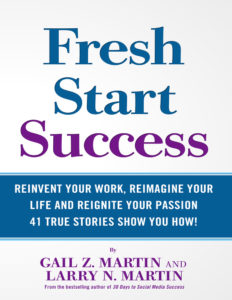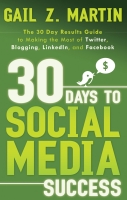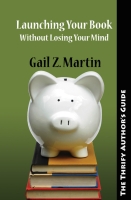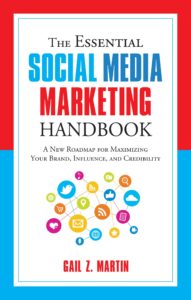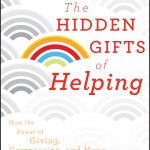 By Stephen G. Post
By Stephen G. Post
www.stephengpost.com/hiddengifts
We can be anywhere, so long as we are helping others and caring for them. This is probably the one source of stability in our lives that we can truly depend on, and so in the end we are never really out of place. At the right dose, contributing in small ways to the lives of others is a one-a-day vitamin for body and soul. I drew on this in recent years as my family and I navigated the peaks and valleys of a big relocation from Cleveland, where I had taught for twenty years in the medical school of Case Western Reserve University, to Stony Brook University in New York (www.stonybrook.edu/bioethics).
A few months after we arrived here, a psychiatrist researcher and friend in New York told me the story of social isolation and a big move leading to suicide. In one of his cases, a remorseful patient named Dave reported that his wife of twenty years had committed suicide with an overdose of sleeping pills while he was away on a business trip. Just a few months before the suicide, this childless couple had relocated to a town where they had neither relatives nor friends. Dave’s marriage was difficult because he was a heavy drinker. His boss thought that a move might give him a fresh perspective. (Actually, moves do not solve such problems, they just relocate them.) Evidently he and his wife had argued bitterly in the days immediately preceding her suicide. Presumably, she resented being uprooted due in part to her husband’s drinking habits. (I was reflecting on this encounter a few months ago when I was doing some lecturing in the Southwest. One of my old friends said that when he and his wife and kids moved from a city in the Northeast to a remote small city, his wife so missed all of her friends and social networks that she actually became clinically depressed for the first time in her life.)
What if Dave’s wife had had a chance to get involved right away in some helping activity, such as volunteering for an organization that she found especially meaningful? Would this have saved her? It would probably have helped, as it often does for “trailing spouses,” be they male or female. Within certain limits, of course, a good way to become free from darker emotions is to get out and help people by doing “unto others” in a voluntary organization that provides social support in the process of serving others. Emotions typically follow along with actions, and move in positive directions as a result of helping. The scientific investigations on these benefits focus on relatively modest activities – a few hours of volunteering once a week.
I suppose that wherever we are after a big relocation, we are still at home if we can stay in touch with the joy of giving. Big moves are not just about “getting acclimated” to a new environment, although there is no question that we don’t quite feel at ease until the things around us become familiar and we begin to feel at home. We humans are creatures of “object relations,” and we live in the visual and audio “symbols” of our environment just as they live in us. But more seriously, pulling up roots disrupts relationships, no matter how much we try to stay connected-in-a-way by electronic gadgets. At a certain level, as the philosopher wrote, “out of sight, out of mind.” People back home move on to new relationships in the real world of face-to-face interactions.
So we lose what Robert Putnam and other sociologists refer to these days as “social capital,” and we need to rebuild it as soon as possible for our mental and physical health. Rebuilding is easier for some people than for others, depending on personality types, age, resiliency, and whether a move felt forced due to difficulties such as job loss, home foreclosure, or illness. Moving along on the journey of life can be glorious in younger years after a stable high school experience. Younger folks like to explore the world and try something new. But for those who are in their middle or late life, leaving a place where so much energy and heart has been invested over the years in building relationships and community opens the doors to all kinds of psychological challenges. The epidemiology is clear: Depression rates rise a bit as people begin to feel deeply the lost of friends, acquaintances, and the background familiarity that they tend to take for granted. Suicide rates rise, a fact that Emile Durkheim grasped well in his sociological analysis of the rise of suicide in the modern world due to loss of stable cummunitas and the resulting malaise of anomie. Men who move in mid-life have considerably higher rates of heart disease. No doubt the stress of having to start over and recreate life is a lot to bear, and can be hugely stressful for self and family. What could contribute more to the epidemiology of what psychologist James Lynch called “the broken heart” than a big unwelcome move that rips a person out of the world where they have been, as the philosopher Ed Casey writes, “implaced.” It often takes a few years to recreate what was lost. It is easier for military families because everyone is on the move, and the culture of military social life and adjustment is more routine – although it is still not an easy way of life.
This gets me back to a favorite theme – the “helper therapy principle” can salvage your life in tough times. I first heard of something like “helper therapy” from my Irish mother. On my boring “off days” as a child, Molly Magee Post told me, “Stevie, why don’t you just go out and do something for someone?” No, she did not say, “Stevie, go read a book,” or “Stevie, go clean up your room.” I read a lot anyway, and kept an orderly room. Heading across the street I would give old Mr. Muller a hand raking leaves, or help Mr. Lawrence fix his mast. It always felt pretty good. Such simple action, but it brings together spiritual, moral, and health psychology in a common chorus, and it may be one of the few things that constitutes universal truth.
In a new community, volunteering is a good way to recreate social networks. People who volunteer tend to report better health, greater happiness, lower anxiety levels, deeper meaning, and even sleep a little better. Helping is a buffer against helplessness, and an affirmation of self-efficacy – I can do this! Find something to do that is meaningful, draw on talents and strengths in order to feel effective, and have faith that even if at first you are not quite inspired, your capacity of joy will eventually catch up with your actions. As Putnam points out in his new book, American Grace (2010), a great deal of rebuilding social networks occurs in and through communities of faith. So, if you happen to be a person of faith, one of the best things to do after you land in a new place is to find a congregation of fellow believers. These days we have so many researchers concluding that the brain is essentially a social organ with its cells and pathways wired for empathy, for experiencing the joys and sufferings of others as if they are our own. Inhibit giving and inhibit flourishing.
Abraham Lincoln navigated a lot of melancholy. He said, “When I do good, I feel good; when I do bad, I feel bad.” No, there is no certainty of pay back, and Lincoln was not keeping score. But his generosity and helping behaviors gave him inner peace and the strength to overcome a history of depression. The idea here is to help others and do good because that is just the happiest and healthiest way to live out one’s life; it is also the way of life that is the most inwardly fulfilling, regardless of whether one gets anything back from others. Virtue, as the saying goes, is its own reward. Pay it forward, no need to pay it back, and hope to inspire others to “go and do likewise.” But in giving there is a glow, an inner benefit to the giver that can be seen in buoyancy and effervescence, and this is something that we can depend on pretty well; reciprocity, in contrast, is never reliable, however much we should all be gracious recipients when others seek to return kindness. We have to break free of “tit for tat” mentalities that require a response in kind. This iron law of reciprocity hangs over our necks like a sword of Damocles, keeping us from the inner freedom of love without limits.
Helping others rarely stands alone. Studies show that it brings with it an internal freedom, a sense of meaningful agency, joy, hopefulness, and peace. In this sense, helping love leads us into a family of emotions that are so strongly and closely connected that they blend together into one harmonious state of being. It is impossible to imagine love not giving rise to a spontaneity and liberation from all those emotions that weigh us down; it is impossible to imagine loving without joy and delight in the beloved; it is impossible to imagine loving without having hope in them and for them; and it is impossible to imagine loving in any sustained way without an inner peace and gratification that by its nature denies violence in emotion, word, intention, or deed.
The 2010 Do Good Live Well Survey, released by United Healthcare and VolunteerMatch (www.VolunteerMatch.org), surveyed 4,500 American adults. 41 percent of Americans volunteered an average of 100 hours a year. 68 percent of those who volunteered in the last year reported that volunteering made them feel physically healthier. In addition,
- 89% report that “volunteering has improved my sense of well-bring”
- 73% agree that “volunteering lowered my stress levels”
- 92% agree that volunteering enriched their sense of purpose in life
- 72% characterize themselves as “optimistic” compared to 60% of non-volunteers
- 42% of volunteers report a “very good” sense of meaning in their lives, compared with 28% of non-volunteers
How wise it is to do what one can to contribute benevolently to others!
This “giver’s glow,” as I term it, has healing properties. Inner wholeness, nirvana, true peace – these are all related to the activity of self-giving love. A glow stick is a translucent plastic tube containing substances that when combined make light through a chemical reaction. After the glass capsule in the plastic casing is broken, it glows. The brokenness is part of the process. Give and grow, give and glow.
________________________
 Stephen G. Post (www.StephenGPost.com) is the best-selling author (Wall Street Journal list) of The Hidden Gifts of Helping: How the Power of Giving, Compassion, and Hope Can Get Us Through Hard Times (2011). He is Professor of Preventive Medicine, Head of the Division of Medicine in Society, and Director of the Center for Medical Humanities, Compassionate Care, and Bioethics at Stony Brook University (www.stonybrook.edu/bioethics). He was previously (1988-2008) Professor of Bioethics, Religion and Philosophy, School of Medicine, Case Western Reserve University, and Senior Research Scholar at the Becket Institute of St. Hugh’s College, Oxford University. Post is a Senior Fellow in the Center for the Study of Law and Religion at Emory University.
Stephen G. Post (www.StephenGPost.com) is the best-selling author (Wall Street Journal list) of The Hidden Gifts of Helping: How the Power of Giving, Compassion, and Hope Can Get Us Through Hard Times (2011). He is Professor of Preventive Medicine, Head of the Division of Medicine in Society, and Director of the Center for Medical Humanities, Compassionate Care, and Bioethics at Stony Brook University (www.stonybrook.edu/bioethics). He was previously (1988-2008) Professor of Bioethics, Religion and Philosophy, School of Medicine, Case Western Reserve University, and Senior Research Scholar at the Becket Institute of St. Hugh’s College, Oxford University. Post is a Senior Fellow in the Center for the Study of Law and Religion at Emory University.
Post is recognized as a leader in the study of altruism, love, and compassion in the integrative context scientific research, philosophy, and spirituality. He is President of the Institute for Research on Unlimited Love (www.unlimitedloveinstitute.com), founded in 2001 with support from philanthropist John Templeton and the Templeton Foundation. As a boy Post studied the philosophy and theology of love at St. Paul’s School in New Hampshire with the distinguished African-American Rev. John T. Walker, who later became Dean of the National Cathedral. He completed his Ph.D. on the relationship between other-regarding love and happiness at the University of Chicago, where he was an elected University Fellow, a preceptor in the Pritzker School of Medicine, and a Fellow in the Martin E. Marty Center for the Advanced Study of Religion. He received the Hope in Healthcare Award in 2008 for his “pioneering research and education in the field of unconditional love, altruism, compassion, and service.” He was included in Best American Spiritual Writing (2005), and in 2008 he was the recipient of the Kama Book Award in Medical Humanities from World Literacy Canada. Post is an elected member of the International Society for Science and Religion, and writes a blog for Psychology Today entitled “The Joy of Giving.”
Post is an elected member of the Medical and Scientific Advisory Panel of Alzheimer’s Disease International, and was recognized for “distinguished service” by the Alzheimer Association’s National Board for educational efforts for Association Chapters and families throughout the United States (1998). In 2003 het was elected a Member of the College of Physicians of Philadelphia for “distinguished contributions to medicine.” His book entitled The Moral Challenge of Alzheimer Disease: Ethical Issues from Diagnosis to Dying (The Johns Hopkins University Press, 2000, 2nd edition) was designated a “medical classic of the century” by the British Medical Journal in 2009. Post is the primary author of over 150 articles in journals such as Science, Annals of Internal Medicine, The Journal of Religion, The American Journal of Psychiatry, The Journal of the American Medical Association, and The Lancet.
A public intellectual committed to conveying important ideas in the wider culture, Post has appeared on a diverse range of radio and television programs including The Daily Show, Dr. Oz, Nightline, 20/20, and National Public Radio. Post is sought after as a public speaker by community and professional groups, and is the recipient of the “Top Notch Public Speaker Award” from the Endowment for the Humanities.
A member of the Episcopal Church, Post’s grandfather Edwin Main Post was the husband of Emily Post.
www.stephengpost.com/hiddengifts/







